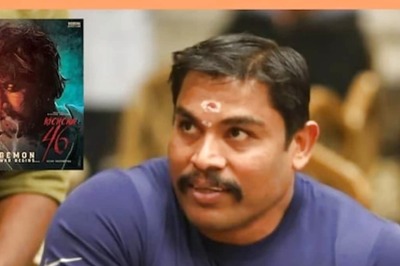
views
The Government of India is planning to open peace negotiations with National Democratic Front of Bodoland cadre who returned to India from jungle bases last week, a senior Ministry of Home Affairs official told News 18.
The talks could give new life to resolve one of Assam’s most intractable ethnic conflicts, which exploded into large-scale violence between Bodos and Bengali-speaking Muslims in 2012 and 2014.
B Saoraigwra, the president of the NDFB faction, returned to India through the Tamu border on January 11, along with 25 other cadre, including key officials, carrying automatic weapons and communications equipment. The group also included members of Saoraigwra’s family.
A second group, led by the group’s general secretary BR Ferrenga, crossed the border into Nagaland’s Longwa village, in Mon district, government sources said.
Three other NDFB factions are already engaged in talks with the central government, built around expanding the powers of the autonomous council which governs the districts of Baksa, Chirang, Kokrajhar and Udalguri.
“New Delhi is keen to begin dialogue as soon as possible,” a Ministry of Home Affairs official said. “For us, the Bodo issue is an important piece of the wider process of negotiating an end to violent conflicts across the North-East.”
Bodo political leaders have been demanding that the council be given a status resembling that of other union territories. The idea has, however, faced pushback from non-Bodos, who make up the majority of the population in the autonomous territory, as well as the Assam government.
Faced with this deadlock, Saoraigwra’s Bodo faction moved to Myanmar, allying with the National Socialist Council of Nagalim’s Khango Konyak-led faction, as well as the United Liberation Front of Asom. Their new group — called United National Liberation Front of Western South-East Asia — marked an effort to revive the insurgency by pooling resources.
In February, though, the Myanmar army took over the NSCN’s base at Saigaieng, an evident effort to prevent the insurgent group from sabotaging Prime Minister Narendra Modi’s ongoing effort to negotiate peace with other Naga group. Five NSCN leaders — Major-General Angmai, Kyaw Wan Sein, Forestry An Kam, Saw Htin, and Aung Sai — also received prison sentences for violating the terms of a 2012 peace accord with Yangon.
Earlier, pressure from Myanmar led the NSCN to impeach its top leader Khango Konyak, and replace him with Yong — a move experts read as an effort by that country to take charge of the group’s affairs.
Founded in 1986 by Ranjan Daimary, to carve out an independent Bodoland in territories north of the Bramhaputra, the NDFB had a strength of some 3,500 cadre at its peak. In 2003, though, it was hit hard by joint operations by the armies of India and Bhutan, which forced it to shut down several camps. Bangladesh later shut down other NDFB camps in that country.
In 2004, the NDFB declared a unilateral ceasefire, which was followed by a formal agreement to enter into talks with India the following year.




















Comments
0 comment